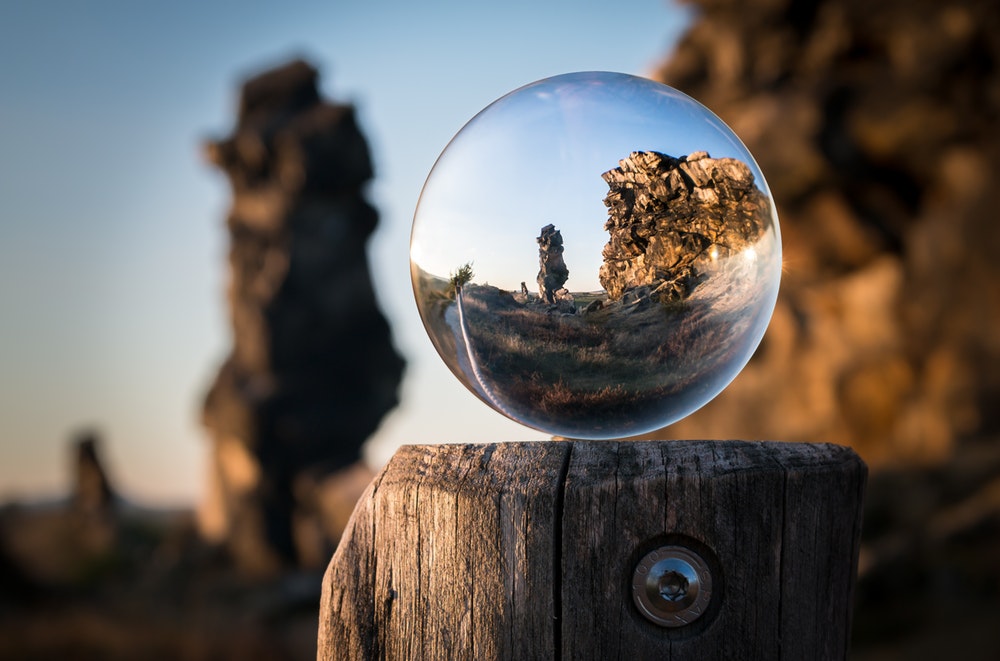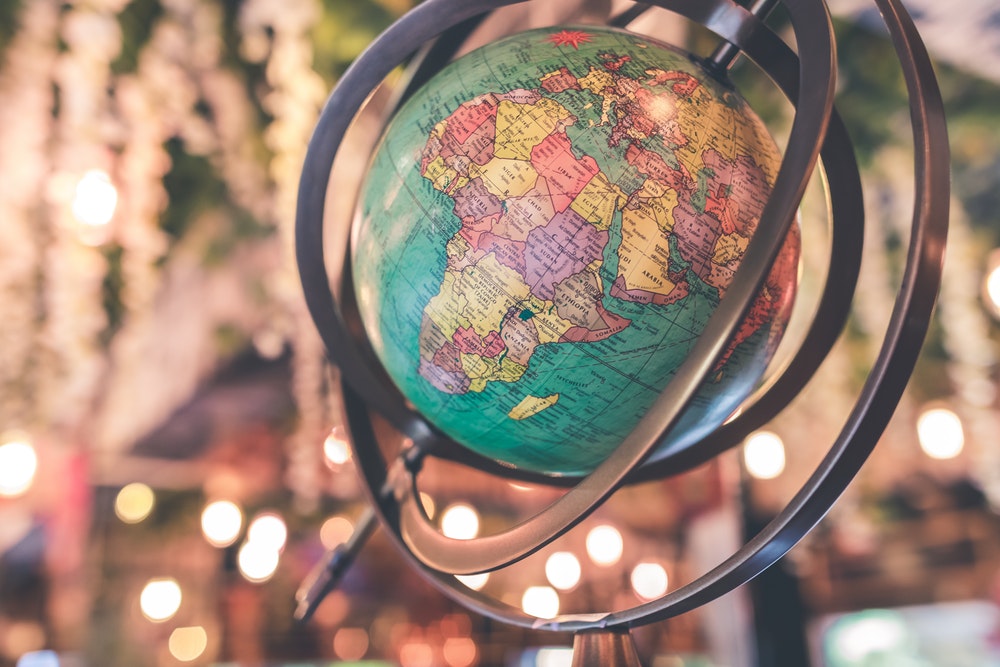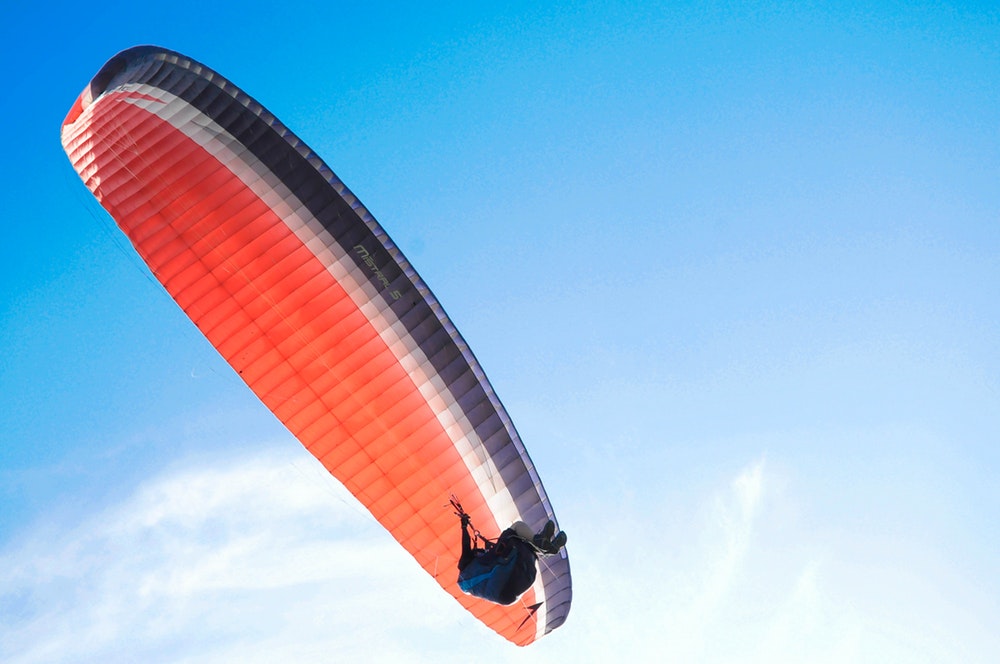Can I just say: Get a grip?!
Instead of waxing poetic about the many Kohs of Thailand, or the magic of the mountains of New Zealand, or the idyllic, ruin dotted jungles of Central America, and instead of pointing out how glad I am not to be neck deep in snow this winter, or wrangling rush hour around Chicago any longer, I’m going to take a different tack.
Today I’d like to remind you how much I hated Jakarta and point out ten other unfortunate byproducts of longer term travel.
1. You can recognize a “real traveler” anywhere, because you become one.
Editor’s note: First, let’s get the “traveler vs. tourist” debate out of the way. There is an obvious difference between someone whose travel goal is to learn and grow and become a better person through their travel experiences vs. someone who just wants to tick items off a bucket list and then post pictures about it on Facebook. We’re not necessarily claiming one is better than the other, just that there’s a difference.
“It takes one to know one,” so goes the school yard taunt. No application could be truer than that of one traveler to another. You don’t find them sprinkled around hostel common rooms or bellied up to the local bars bragging about their cultural conquests or the big ticket items they’ve checked off of their lists as they whisk about the planet on their carefully planned RTW ticket.
Anyone who’s ever been a “real traveler” will know a compatriot anywhere. They’re found waiting on buses in the third world and mincing gingerly through museums in Europe. The airports of India and Central America are littered with them. They’re rarely bragging. Their lips are often pursed in a grim line and their eyebrows furrowed. They hunch slightly and almost limp a little, in their left hands are clutched rolls of toilet paper, and in their right hands, phrase books while they mutter, over and over, the most important words in their new language: “Where is the bathroom?”
Engaged on the most ancient and urgent quest of the true adventure traveler. These, my friends, are the “real travelers.”

2. A complete loss of perspective
It has been said, perhaps even by me, that the most important thing a traveler gains is perspective. Long-term travelers cite their visits to death camps and museums, their interactions with the truly poor, and their wide cultural experience as life changing, perspective inducing events that leave them forever changed.
Be that as it may, there’s another thing that happens to long-term travelers.
We lose perspective on everything that matters in the “real world.” Our adventures drench us so thoroughly in the rest of the world that we forget, upon our return to pick of the mantle of what we should be doing: like attending a traditional job with focus, trading up houses ever five or ten years in pursuit of the ultimate McMansion, amassing “stuff” at a prodigious rate, participating in the golden triangle of church-work-school with our families, or reveling in the ocean of cheap goods at our finger tips.
Travel long-term and, I warn you, you may lose sight of everything that really matters.
3. You forget how to speak your first language
It was my son who pointed this out a couple of weeks ago, after trying to explain something that required bigger words, in English, to a fellow traveler. He got stuck, had to shake his head a few times, and try again. It’s not that his Spanish is so perfect or so fluent that he’s let go of the kite string in English. No. Actually, it’s quite the opposite. His Spanish isn’t great, so he’s expending a great deal of energy on learning it, practicing it, and doing his best to think in it, which is really what allows a person to take off running with a language. When faced with a situation where he had to reconnect in English only, he found he’d lost a few connecting words that he needed and began to sound like a small child, or a foreigner, or maybe just like a long-term traveler who’s spent a third of his childhood stuck between languages.
I feel his pain. For the first five or so years of our journey, I was the UN translator. All conversations that happened in French-English-Spanish passed through my head. Any languages remotely connected to those three were up to me to make sense of and learn a smattering of as quickly as possible. I cried one night in Oaxaca while in the process of missing the last night bus with four tired kids, two of whom met the definition of “real travelers” and a husband who’s first world roots were showing at the end of a very long day. My brain was mush. My Spanish was faltering, and my English was laying in broken participles around me on the sidewalk. When it happens, it isn’t pretty.

4. When was the last time you had a hot shower?
You know you’re a long-term traveler when you open conversations with complete strangers with a sentence like this. You know you’re talking to a long-term traveler when he doesn’t give you a quizzical look in return, but instead answers with a list of three or four of the “best and worst” highlights from preceding weeks.
The water has been sketchy in our house for the last week. Don’t get me wrong, we’ve had water, it just hasn’t been hot very often, and when it is there is a seven person long queue of long-term travelers watching the clock and insisting that the guy ahead of him adhere to the two minute rule that we adopted when we were cycling Europe years ago when 2 EU bought two minutes of a hot shower.
I might add that this is not some crappy hostel on the edge of the jungle. This is in our house, in Guatemala, complete with gardener and a patio for sipping wine in the evenings. Nonetheless, I should be grateful, one of my teenagers points out: “At least there is water, it is clear, not brown (remember Laos, Mom?!) and this house doesn’t have a suicide shower: you know the ones: with the heater directly over the shower head and wired in haphazardly with no electrical tape, never mind wire caps… the kind that electrocuted you and William week before last in Honduras?”
5. Tattoos become boyscout patches
It’s a trendy thing to ink oneself at this moment in history. Few are the folks between twenty and fifty who don’t have some meaningful piece of art carefully preserved forever on their shoulders.
Travelers seem to be the worst (or the best, depending on one’s perspective) about this. Tattoos have become the boy scout patches of the long-term travelers club. My personal least favorite is the world map, carefully inked in only in the places a guy has been, and no one ever gets this one when she can only check off Lithuania and Mongolia.
It’s the ultimate in, “Look where I’ve been!” announcements; talk about wearing your heart on your sleeve!
Of course there are some great ones out there too if we get beyond tramp stamps and “Pura Vida” foot tat cliches, subtle reminders to the wearer of places they fell in love with, adventures that changed their lives, or personal revelations found deep in the world.
I was humbled by the dual mandalas a young man named Matt had on his inner arms, between his wrists and elbows: “I was reading my book on Khao Lak beach, in Thailand, that design was at the top of my chapter page. It’s the last thing I remember seeing before the tsunami wave washed me inland. They are to remind me that I am alive, and that each page I turn in my life’s book is a gift.”
Or the woman who has three lovely plumeria engraved on the top of her foot, one for each of her sons, exact replicas of flowers they picked for her in Hawaii. She’s since lost one of her precious flowers, but she carries him in her ink.
I must admit to adding one myself this year, my first tattoo, at forty years old. It would look like nothing to you, henna brown on my left wrist, one word in Sanskrit. It holds the greatest lesson of my life thus far, learned across three continents, committed to in Thailand, but not inked until I’d walked half way across Spain last summer.
And then there was that guy on the boat yesterday with a 7-11 cup, complete with frosty beverage bubbles and straw childishly scrawled on his thigh; “I think there was some alcohol involved,” a child snidely whispered beneath the roar of the motor.
Indeed. Tattoos are forever, boys and girls, they can’t be clipped off of your boy scout vest when you level up.

6. Hopelessly out of touch with the “real world”
It must be wildly annoying how very out of touch long-term travelers become with the “real world.” Sure, we can tell you about how to get from Bandar Seri Begawan to Kota Kinabalu, magically procuring five stamps across the border with the same two countries, without retracing your steps, in a one-day journey, but we have no idea who won the Super Bowl. We were busy trying to navigate the Mekong during a monsoon when Downton Abbey became a sensation.
Long-term travelers are no fun at all at parties. We cannot relate to the water cooler conversations, we do not know the Wednesday night TV lineup, the only sports we manage to watch happens in Euro pubs where the show is solidly in the fans shouting and slamming beers on the bar so hard the foam washes onto the floor, and we can’t be bothered to follow the news because it tells such a narrow band of the story that it’s infuriating when one has spent a little time behind the scenes. Hopelessly out of touch with the real world.
7. Turns you into a liberal, hippie activist
The people who have remained my friends over the long haul deserve gold medals of patience and perseverance. I’m hard to live with, perhaps I always have been, but traveling has made me infinitely worse, I know this.
I can no longer shop at Walmart, period. I refuse to buy cheap olive oil, cheap coffee, or cheap chocolate.
Why?
Because every time I pick up a bottle of that oil I see the eyes of women in Tunisia, and the coffee draws me back to the fincas in Guatemala and the horrible human rights abuses that happen there. I stand in the grocery aisles surrounded by ghosts of the suffering who watch me pick up the product that pays for their slavery, and I just can’t do it.
I will go very far out of my way to avoid buying something new if I can. I become enraged, politically, over what most people would consider the minutia. I ruin dinner parties with soap box speeches about why so many women who spend their lives cooking over wood stoves go blind and how easy it is to fix that, or how education is the underpinning of democracy, and how we must get that sorted out for children everywhere, or the “let them eat cake” mentality of the first world towards pretty much everyone else.
I’m an insufferable guest. Walk with me for a while and I’ll tell you stories of holocausts and genocides and ruin your day by pointing out the shadows of your beach resort vacation. I can’t help it. Travel has turned me into a liberal hippie activist because the ghosts follow me everywhere.

8. Makes you homesick forever
“Do you ever get homesick?”
I love that question. We’re asked it at least once a week.
The answer is obvious: of course we do.
What people don’t expect, however, is the real answer: Even at home, we are homesick.
Long-term travel changes the way a person looks at the concept of home. It ceases to become a dwelling, erected in time and space that we furnish with carpets and art. Instead, home becomes a particular beach at sunset, a little hippie town in the mountains, the taste of a perfect mango handed to you across a market stall in Cambodia, Borneo at Christmas, or the stars overhead in the Outback of Australia.
I’m homesick almost everyday for somewhere, or someone. The people I’ve met who changed my life over a beer at Phen’s on a warm evening in Nai Yang, or who walked with me and held my hand while I laughed and wept my way across Spain, or who opened my eyes to the children of countless nowhere towns. You think you’re homesick, a few months into your first big trip, but what you discover is that the feeling never goes away, it just switches loyalties.
9. Your rating scale changes
I have stayed in hotels that defy star ratings, so don’t tell me I don’t “get” that. I do, and I love it.
Breakfast in a hotel bed with 800 thread count Egyptian cotton sheets is my idea of absolute heaven. I’ll order the orange juice and chocolate croissant, without fail. If there is creme brulee to be had, I’ll happily start my day with it.
I have, however, moved a bit beyond hotel star ratings as my measuring stick over the years. Roads are now rated on a scale of, “from the hills outside of Rantapao to Wolfe Island.” Meals are rated based on, “from street tamales to Phen’s.” Bad days are rated between, “The rainy snake night in Nova Scotia to the overland bus through Lao Bao.” Illnesses are classed between, “Pooping to death and Mexico and that night Gabe lost his mind in Thailand.” Scary travel moments are rated between, “Hiding behind that truck on the Honduran border and being separated from the kids by an M-16 during a drug raid in Mexico.” Best days are rated between, “The food festival in Italy and diving the Great Barrier Reef.”
Long-term travel will, eventually, make you reevaluate everything and rate your whole world on a scale of, “planting rice on Don Khong island to diving Samalona.” Sad but true.
10. Extraordinary things become normal
It is a sad byproduct of traveling far and wide that extraordinary things become completely normal. This is seen nowhere more clearly than in children who travel.
My kids are completely non-plussed by chicken busses or orang utans. To them, the world is their classroom and whatever presents itself is simply the day’s lesson. It’s simultaneously the best and worst part.
I love that the “exotic” has become the norm, because it’s at that point that we cease to be observers of the world, National Geographic style, and instead find ourselves equal participants. It’s not that a traveler isn’t duly impressed by the majesty and diversity of the world, quite the opposite actually, it’s that deep appreciation that develops for the privilege of participating in such a diverse and vital world that keeps diving deeper. It’s just that traveling long enough causes a person to realize that nothing is truly extraordinary because all of it is.
A bag of Oreos, a Dr. Pepper, or the powder packets from a box of Kraft Macaroni and Cheese will send my termite tasting, chile-lime grasshopper licking, elephant and camel riding, SCUBA diving spawn into a frenzy of enthusiastic glee that one would think should be reserved for Christmas morning. Peanut butter is the stuff of the gods and as rare as an American wheat penny found in an old shoebox. Attending a little league game or their first American high school football game is on par with attending a cock fight in Indonesia or la Traviatta at the Sydney Opera House.
One is not better than the other, simply different, and to be enjoyed with equal intensity.
That’s a perspective, and a joy in the little things we once considered “daily life” that they wouldn’t have if not for our walk in the world.
Like this story? Sign up for the Daily Dose and get more BootsnAll in your inbox.
